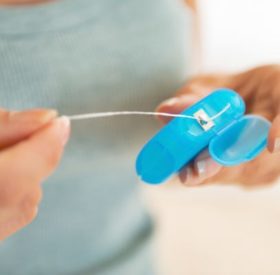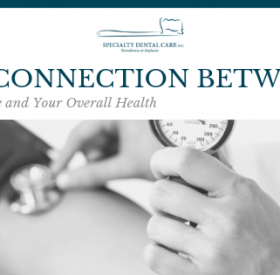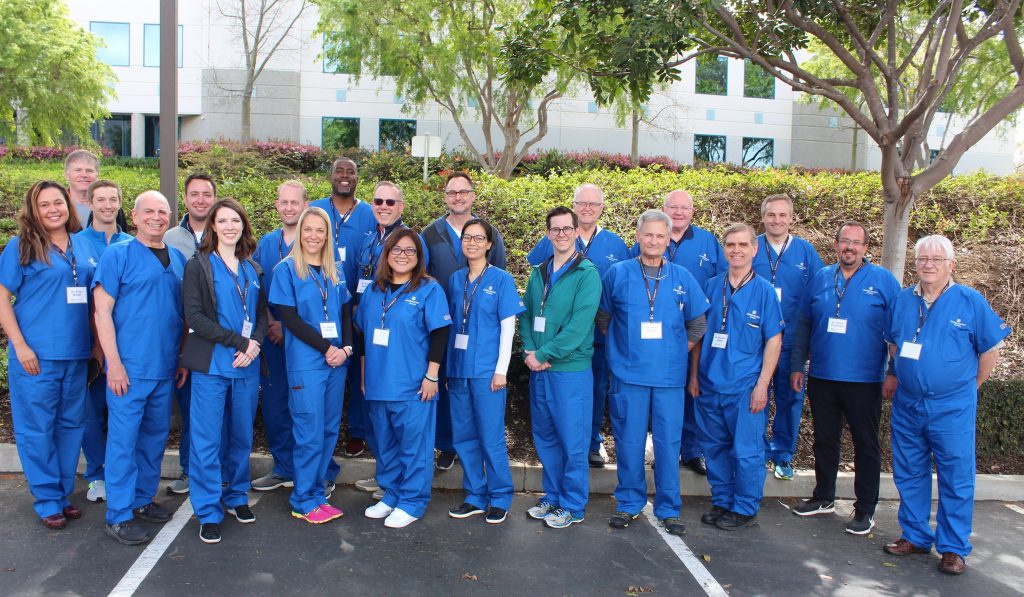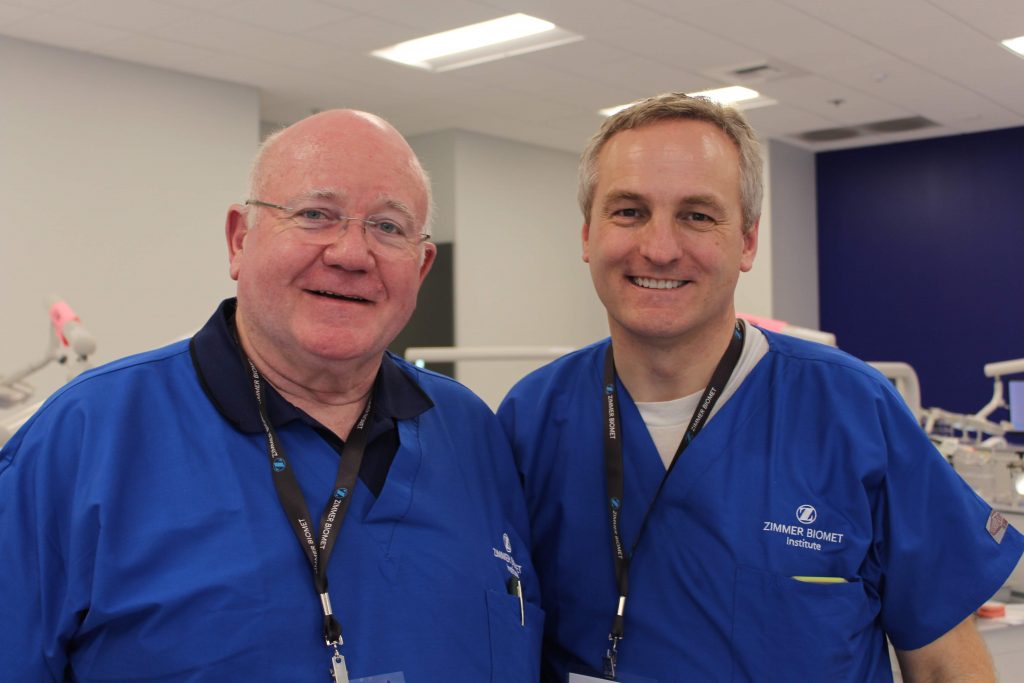-

Top Reasons Why Your Gums Bleed When Flossing
You have likely experienced bleeding with brushing or flossing, however many don’t recognize the reason “why” their gums might be bleeding or that most causes are completely preventable.
Long story short, your gums bleeding during routine dental hygiene is an indicator that you might not be maintaining a good standard of health.
Your mouth is exposed to numerous types of bacteria. If oral health is not maintained properly this can result in bleeding gums. A few things you can do to help kill or decrease the impact of bacteria in your mouth are:
- Change your toothbrush regularly. Every couple of months is a general rule of thumb.
- Floss after brushing to remove any leftover food debris between teeth. Food can easily get trapped in places your toothbrush can’t get to effectively.
- Maintain routine appointments to your periodontist. We specialize in gums, so if you are concerned by excessive bleeding please contact us or let us know at your next visit.
Common Causes Of Bleeding Gums
- Gingivitis
Gingivitis is one of the leading causes of bleeding. This is a condition where there is a buildup of plaque on the roots of the teeth. The condition causes the gums not to attach properly so that they easily bleed every time your gums are disrupted.
- Smoking
Smoking is a common, but smoking can cause damage to your teeth due to excessive tobacco. This makes cleaning your teeth very difficult. Quitting smoking is crucial to maintaining the health of your teeth.
- Lack of Vitamin K
Vitamin K is beneficial for protein in doing work against coagulation to be healthy. Vitamin K deficiency can cause the gums to bleed because the coagulation system does not function properly.
- Age Factor
Bleeding gums also depend on a person’s age. The older you are the greater potential for bleeding gums.
- Stress
The cause of bleeding gums is stress. Stress can cause the weakening of the tissues of the mouth and gums, causing bleeding.
- Uneven Teeth
Uneven teeth or losing a part of your teeth can cause your bite to rub against your gums causing bleeding.
The biggest protection against oral health complications such as bleeding gums is early detection. Please notify us as soon as a problem arises or at your regular hygiene check-ups. Making your oral health a priority is critical to a happier, healthier you!
-

The Connection Between Gum Disease and Your Overall Health
Your oral health is actually a snapshot into your overall health. The health of your mouth, teeth and gums can affect your general health, causing or even accelerating other health issues. At Omaha Specialty Dental in Omaha, we work closely with our patients to ensure their oral health is at its optimal level.
How Your Oral Health and Your Overall Health are Connected
Your mouth is actually filled with bacteria. Most of these bacteria are harmless. Normally, daily brushing and flossing coupled with your immune system can keep this bacteria under control. Not following proper oral hygiene can jeopardize this balance, causing tooth decay and even gum disease.
Alternatively, various medications (i.e. decongestants, painkillers, antidepressants) can reduce saliva flow. Saliva is crucial to washing away food and neutralizing acids. This helps protect you from bacteria invasion or overgrowth that might lead to disease.
Conditions Linked To Oral Health:
Your oral health might contribute to various diseases and conditions, including:
- Endocarditis.
- Cardiovascular disease.
- Pregnancy complications and low birth weight.
Certain conditions also might affect your oral health, including:
- Diabetes.
- Immune System destructive diseases
- Autoimmune diseases and allergies
- Osteoporosis.
- Alzheimer’s disease.
This is why we do an updated health history form at every visit. It allows us to see if you might be taking any medications that would impact your oral health or if you’ve had any changes in your overall health we should be aware of.
How To Keep Your Mouth Healthy
Protecting yourself from oral health issues is a daily practice. Here are a few steps to proper oral hygiene:
- Brush your teeth at least twice a day with fluoride toothpaste.
- Floss daily.
- Eat a healthy diet and limit snacking on sugary foods.
- Replace your toothbrush every three to four months or sooner if bristles are frayed.
- Schedule regular dental checkups and cleanings.
- Avoid tobacco use.
The biggest protection against oral health complications is early detection. Please notify us as soon as a problem arises or at your regular hygiene check-ups. Making your oral health a priority is critical to a happier, healthier you!
-
Dr. Tim McVaney Attends The Zimmer Biomet Institute PathwayZ Program

Dr. Tim McVaney attended the zbiPathwayZ Self-Study Series Workshop hosted by the Zimmer Biomet Institute on April 7, 2019 to learn a new approach to dental implant therapy.
Learn more about the seminar below and ask us about our implant therapy services.

The zbiPathwayZ Self-Study Series is an introductory program which allows clinicians to start on the road to competency in a comprehensive approach to dental implant therapy. The curriculum begins with a series of self-study webcasts, followed by a one-day skill development course held at Zimmer Biomet Institute (facilities in Carlsbad, CA and Parsippany, NJ).
About Zimmer Biomet Institute:
The Zimmer Institute provides clinicians with an unparalleled learning experience. Basic-to-advanced surgical and restorative concepts and techniques are taught by globally-recognized universities and training center faculty. The Simulated Patient Training Laboratory and proprietary SimLab Mannequins allow participants to refine their skills and gain confidence through hands-on repetition with real-world clinical scenarios. Zimmer is a ADA-CERP recognized provider.
-
To Floss or Not to Floss
Recently Reported Dilemma in the Journal of the New York Times
Levi Spear Parmly, a dentist from New Orleans, is introduced the first form of dental floss. In 1819, he recommended running a waxen silk thread “through the interstices of the teeth, between their necks and the arches of the gum, to dislodge that irritating matter which no brush can remove and
which is the real source of disease.”“According to a recent study published in the journal Science of Nature, a team of researchers were able to determine what some of our ancient ancestors ate, how they prepared their food, and even how they cared for their teeth by examining the calcified plaque found on human teeth” from Spain that were1.2 million years old.”
“Researchers found pieces of non-edible wood stuck in grooves on the teeth, “suggesting oral hygiene activities,” the study says. These grooves are typical in species that pick their teeth using pieces of wood, the study notes. In other words, the researchers may have uncovered some of the earliest evidence of man’s toothpick use”
When my father practiced dentistry in the 1950’s to the 70’s, the dental health of the US started to make a major swing toward improved oral health through increased use of preventive services, delivery of fluoride in the water, in addition to improvements in restorative materials and dental devices. In the 1960’s, often as many as 70 % of the population was in dentures by the age of 60. Now, it is less than 20%. We have now delivered the baby-boomer generation into their 50’s and 60’s with most of their teeth!
The New York Times article basically stated that floss was not necessary because there were no double blind studies to prove the case that it was effective. The remarkable part of this ‘false news’ was that it failed to recognize the contribution of almost 200 years of experience and judgement that had clearly indicated that floss is a significant tool in preventing dental disease.
As stated by a colleague; ‘parachutes have a similar complication- no double blind study has proven the effectiveness of a parachutes as being more effective than using nothing to jump out of a plane and land safely’.
As we age, we often develop spaces in our gums and teeth that require the use of different devices to clean our teeth. If you have firm pink gums filling the space in between your teeth, you need floss to slip between the tooth and gum to regularly clean plaque from those surfaces. We even recommend the use of floss in implants to facilitate gum fill. You still want to use a brush, but you should still use floss daily. If you have visited us you know what we recommend, and if not then maybe it is about time.
